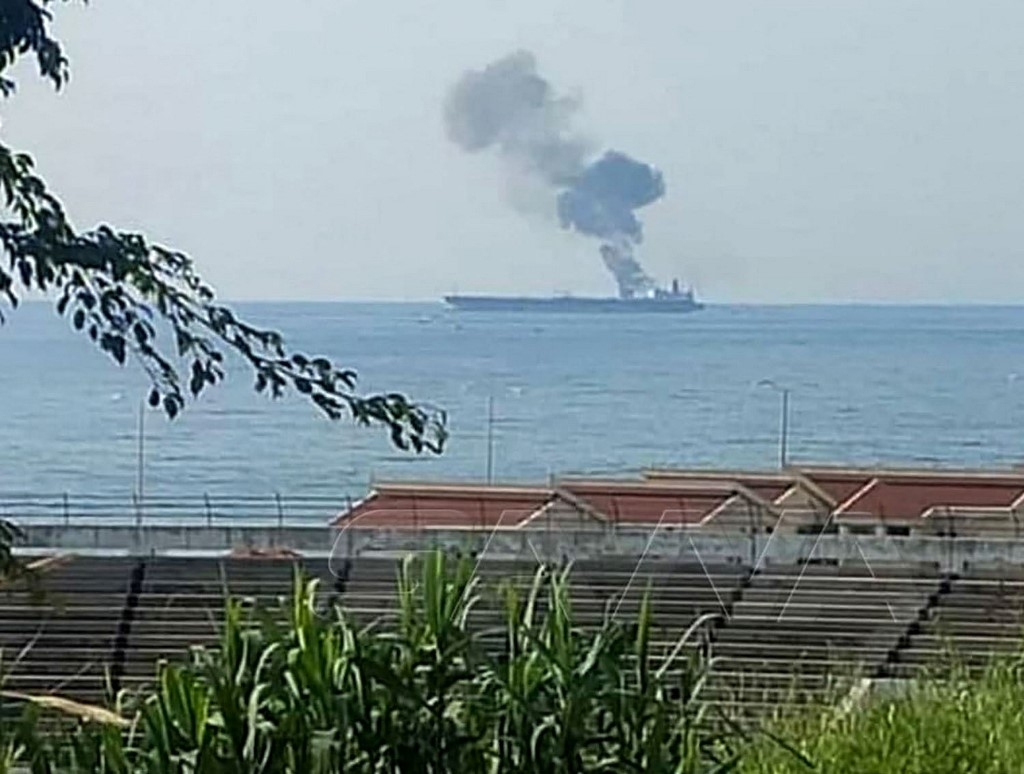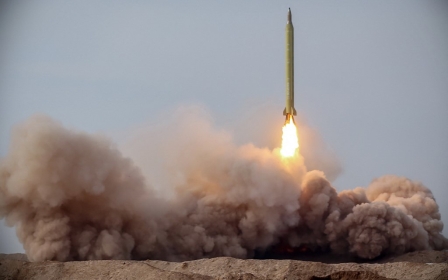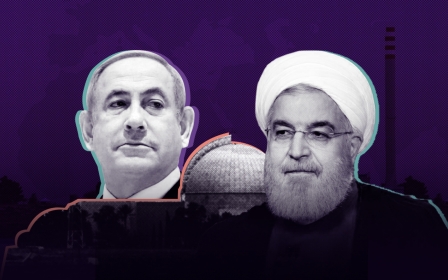At least three killed as Iran fuel tanker attacked off Syria

At least three people died when an Iranian tanker was attacked off Syria's coast on Saturday, in the first assault of its kind since Syria's civil war started a decade ago, a war monitor said.
"At least three Syrians were killed, including two members of the crew" in the attack that sparked a fire, said Rami Abdurrahman, head of the Britain-based Syrian Observatory for Human Rights.
It was not clear who carried out the attack, the war monitor said.
"We don't know if this was an Israeli attack," Abdurrahman told AFP, adding that "the Iranian tanker came from Iran and was not far from Banias port".
It was also not clear if a drone or a missile was used in the attack, the Observatory said.
New MEE newsletter: Jerusalem Dispatch
Sign up to get the latest insights and analysis on Israel-Palestine, alongside Turkey Unpacked and other MEE newsletters
Syrian state news agency SANA, quoting the oil ministry, said the fire erupted after "what was believed to be an attack by a drone from the direction of Lebanese waters". The flames were later extinguished.
In a report published last month that cited US and Middle East officials, the Wall Street Journal said Israel had targeted at least a dozen vessels bound for Syria and mostly carrying Iranian oil since late 2019.
Hundreds of Israeli air strikes have also struck Syria since the war began in 2011, mostly targeting allies of Bashar al-Assad's government from Iran and the Lebanese Hezbollah movement, and Syrian government troops.
The Banias oil refinery is located in the government-controlled coastal province of Tartus.
"It's the first such attack on an oil tanker, but the Banias terminal has been targeted in the past," Abdurrahman said.
Early last year, Damascus said divers had planted explosives on offshore pipelines of the Banias refinery, but the damage had not halted operations.
In February 2020, four oil and gas sites in the central province of Homs were attacked by armed drones, sparking fires and causing material damage.
Nuclear facility
Saturday's attack came after a Syrian officer was killed and three soldiers wounded on Thursday in strikes launched by Israel, after a missile was fired towards a secretive nuclear site in Israel.
The Israeli army said at the time that a surface-to-air missile had been fired from Syria toward the southern Negev desert, where the Dimona nuclear reactor is located.
The exchange of fire came less than two weeks after Iran accused Israel of "terrorism" following an explosion at the Islamic republic's Natanz nuclear facility.
Israel is considered the leading military power in the Middle East, and is widely believed to possess its sole nuclear arsenal.
It has never disclosed its atomic arsenal, but foreign experts say Israel has between 100 and 300 nuclear warheads.
There were no immediate reports of any casualties or damage on the Israeli side.
Israel has long sought to prevent bitter foe Iran from establishing itself in war-torn Syria.
Before Syria's war, the country enjoyed relative energy autonomy, but production has plummeted during the war, pushing the government to rely on importing hydrocarbons.
Western sanctions on oil shipping, as well as US punitive measures against Iran, have complicated these imports.
Pre-war production was 400,000 barrels per day (bpd) in Syria. But it stood at just 89,000 bpd in 2020, Syria's oil minister said in February, of which up to 80,000 came from Kurdish areas outside government control.
Middle East Eye delivers independent and unrivalled coverage and analysis of the Middle East, North Africa and beyond. To learn more about republishing this content and the associated fees, please fill out this form. More about MEE can be found here.




